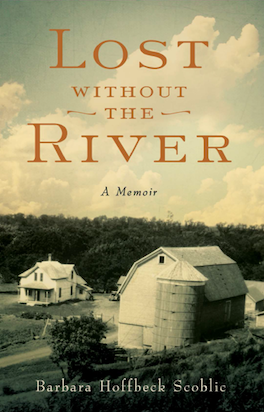
Maria Savva lives in London. She works as a lawyer, and writes novels and short stories in various genres, including drama, psychological thriller, and family saga. Her short stories have appeared in the Bestseller Bound Anthologies and she is a regular contributor to the The Mind’s Eye series of books. Maria is also a music blogger. You can find out more about her work at her official website: mariasavva.com
Yes, I’ve worked as a solicitor for over 15 years and recently I’ve started working as a family lawyer again, which is what I started out as when I first qualified back in the 1990s. I’ve worked in many different areas of law over the years, including criminal law, immigration, probate, housing, and conveyancing. I think, as writers, we can’t help but include some of our own life experiences in our fiction and I’ve found that although I never set out to include any law related stuff in my novels and stories, certain things tend to find their way into the books. For example, the character Penelope from my novel A Time To Tell was inspired by the victims of domestic violence I’ve met. The main character in Second Chances, James, is a solicitor, and many of his workplace scenes are based on my own experience of working at law firms; the two scrooge-like bosses are loosely based on some not-so-nice partners I worked for. A lot of my short stories also include bits and pieces that are inspired by the things I’ve seen or heard in my day job. Family law, in particular, can be quite emotionally draining work. You hear things that shock you, and then over the years you become kind of immune to a lot of things that most people would find upsetting or hard to listen to—that’s not necessarily a good thing and has always been one of those moral dilemmas I’ve had to deal with. I believe that writing, for me, has been an outlet for many of those emotions. I do find that I often subconsciously use writing as a kind of therapy, which is probably why many of my stories and novels are quite dark! Writing is very therapeutic, and I sometimes wonder how people who don’t write fiction manage to deal with real life.
I was inspired to become a lawyer when I studied Business Studies at A-level. Part of that course included law; our tutor was a very entertaining man and he made the subject seem exciting. I was also inspired by all those courtroom dramas in the 70s and 80s, where being a lawyer always seemed like such a glamorous thing to do. Unfortunately, the reality is a bit different… As for becoming a writer, I think it’s always been something that I knew I wanted to do. I was a bookworm from the moment I learned to read. I always loved books and reading, and as a child I would joke that I would one day write a bestseller and that a film would be made based on one of my novels. That’s always been a dream of mine.
Thank you. I’m flattered to hear that. I don’t think there is a technique as such, or if there is I am using it without knowing about it! In my experience, you can’t plan a story any more than you can plan how your day will unfold. The way it works for me is that I will have an idea for a story and then, as I write, the creative process takes over and the stories kind of write themselves, as weird as that may sound. As for my characters’ inner dialogue, I’m quite an introvert so am always thinking about something; that’s probably reflected in the way my characters do a lot of thinking. The realism part of it probably just comes across because I base conversations on the types of conversations I have every day, or from listening to other people. I’m probably lucky in that sense because I meet so many different types of people in my job, so can take a lot of inspiration from my experiences.
Truthfully, I don’t remember why I decided to do that because it was a few years ago, but it was probably because I’m interested in human nature and why people do the things they do, and it’s interesting to see things from more than one person’s perspective. Only when you look at both sides of the story can you see the bigger picture. I like the way that story turned out. It was a technique that I’d used in my novel Second Chances, to some extent, because in that novel we see the story from the perspective of the husband and the wife in individual chapters. Interestingly, my working title for that novel was “Two Sides To Every Story.” With Delusions and Dreams, I took the idea a little bit further. It was an interesting way to write.
That’s an interesting question. Rex is definitely larger than life and I’ve considered writing a sequel because he’s so intriguing. If I can fit that in around my day job I might do that. As for who would play him in a movie, I don’t really watch that many films these days, so don’t know all the famous actors. I’d probably choose someone who is good at portraying a character who has many different elements to his personality, so a versatile actor. Someone who can play a darker character, because Rex is a bit of a psycho. Maybe Johnny Depp, or someone like him.
I love live music, so going to gigs is one of my favorite things. I also blog about new music. I like going to the theatre and comedy shows, too. It’s also nice spending time with my nieces and nephews.
Alice in Wonderland, The Chronicles of Narnia, Swallows and Amazons, Mr. Men, The Famous Five, The Secret Seven, etc.
My favorite authors these days tend to be independent authors as I read a lot of self-published books. Some of my favorites are Darcia Helle, J. Michael Radcliffe, Tim Baker, Julie Elizabeth Powell, Maria Haskins. They are all fantastic writers and great people too. My favorite best-selling authors include Paulo Coelho and Lang Leav.
I have a few books on the go at the moment. I have been going through a phase where I start a book and then go on to start another one but keep going back to the earlier ones. If I ever finish any of them it will be a miracle! I’m reading: The Baker’s Man by Jennifer Moorman; The Power of Now by Eckhart Tolle; The Stranger by Sylvia Massara; Perks of Being a Wallflower by Stephen Chbosky.
I’m always working on something new but for me it’s a matter of fitting it around my day job. Most of my writing is done late at night and then I always regret staying up too late when I have to get up for work the next day. At the moment I’m working on a new short story collection. This one will feature about 7 stories that I’ve written this year. I didn’t have a schedule for writing them. The first 4 were written quite quickly when I had a break from work, and the others have been added along the way as and when I’ve found time to write. The collection is at the editing stage at the moment. I didn’t really have a theme of any kind for the book, but strangely all the stories seem to have a common element in that they deal with how the past can affect the present, and there are a couple of fantasy or other-worldly tales too, so I’ve called the collection Out of Time as a working title. That may change. I’d describe my writing process as mysterious. I usually start off with an idea and then when I start writing I get other ideas that add twists and turns, and somehow there is an ending. I’m mostly surprised at how I managed to get to the ending and it usually makes a lot of sense when I read it back, almost as if I’d had a plan for the story all along, yet it really is a mystery how I get to the end of a story. I really like the process, actually. I’ve often said that it feels like the story is already waiting out there somewhere and my job is to find it and write it down.
Unfortunately not. The best advice is just keep writing. A book is, in my opinion, a separate entity and if its time has come nothing can stop it being noticed. You can’t force it.
For more insight into the novels of Maria Savva, read Piper Templeton’s essay Regret and relationship in the fiction of Maria Savva.







8 comments
Great writer, great person!
Thanks, Julie x
“Writing is very therapeutic, and I sometimes wonder how people who don’t write fiction manage to deal with real life.” Yes! I can’t imagine full-time reality.
Great interview, Maria.
I agree with Michael. I’ve loved all your books, but Haunted still remains my favorite. Something about that one really sticks with me. Though I still itch when even thinking about The Spider. 🙂
Thank you for the mention! I’m honored!
Ha, ha! Thanks, Darcie. Yes, full time reality would be unbearable 🙂 Thank you for the kind comments. It’s funny that lots of people seem to relate to Haunted in some way… especially as the subject matter is so dark. I do have a soft spot for that book. It was written during one of my darker times and really proved that fiction can be therapeutic.
I love all your books and I think, in a way, you and Michael inspired me to explore the darker side of my writing. It’s actually fun!
A wonderful interview with a fantastic author! My personal favorite is Maria’s story “Haunted” which is a great read.
Thank you, Michael! Haunted definitely has the themes of regret and relationships running through it, too. Probably the darkest story I’ve ever written. Glad you enjoyed it 🙂
Wonderful interview. Thank you!
Thank you, Donna. I’m glad you enjoyed it. x
Comments are closed.